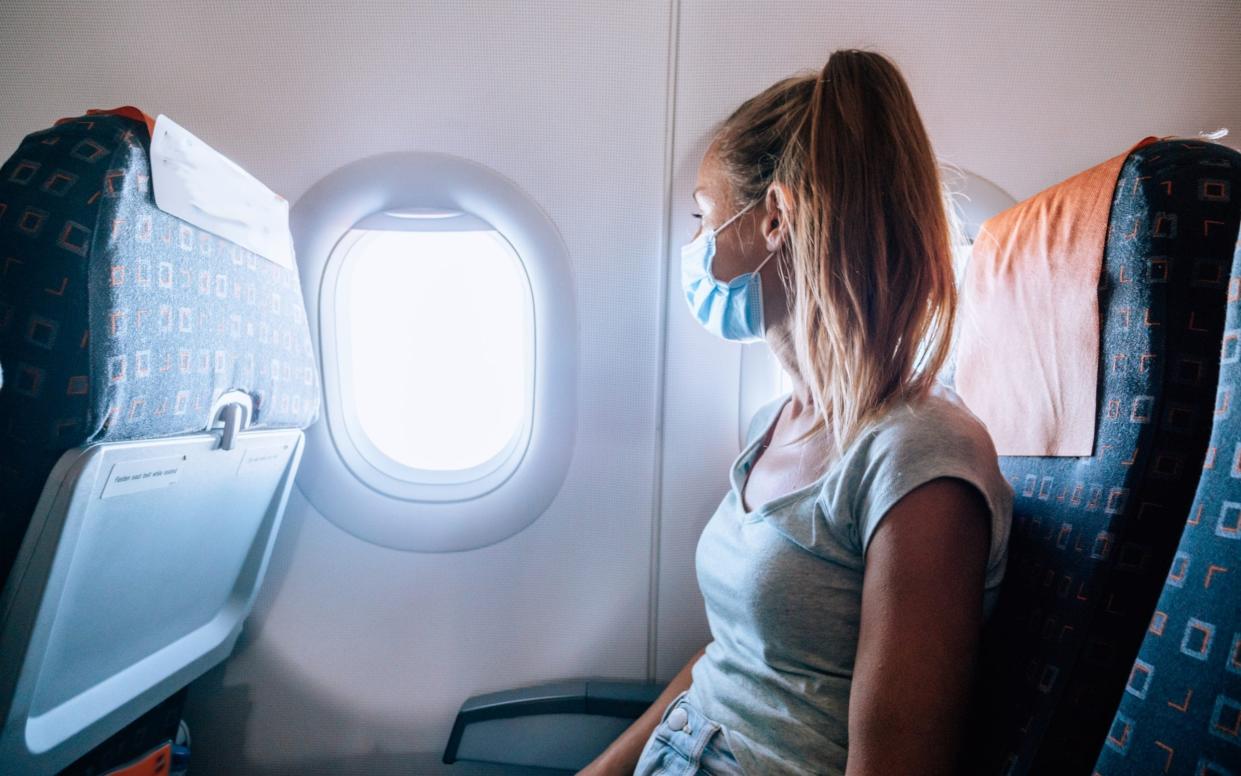What to do if you test positive for Covid while on holiday

As of October 4, fully-vaccinated travellers no longer need to take a Covid test before arriving in the UK – though those that are not vaccinated will still need to take one. So, what happens if your test returns a positive result – or if you happen to contract Covid during your trip, despite being vaccinated?
Below we detail what to do if you catch coronavirus on holiday, whether in the UK or abroad.
What do I if I feel unwell on holiday?
TravelHealthPro, the Government’s travel health website, has issued the following advice:
"If you develop symptoms of new continuous cough, high temperature or a loss of, or change in, your normal sense of taste or smell (anosmia) while abroad or during travel, you should immediately:
Stay indoors and avoid contact with other people.
Call your health provider and/or insurance company to discuss what you should do. Remember that if you have been in a malaria affected area in the last year, it is important to exclude malaria as a cause of high temperature (blood test required).
Follow local public health guidance if available.
If you become unwell at an airport, bus or train station before or during a long trip, seek medical advice and do not start or continue your journey.
What if I test positive while on holiday?
If you test positive for Covid-19 while abroad you will need to follow local public health advice regarding self-isolation. You should expect to self-isolate in the country you are in, so you may need to stay longer than planned. Plan ahead for any possible delays to your return home and the entry requirements at your next destination. Once you have fully recovered, check with your health provider if you are fit to travel, before any onward travel.
The Department for Transport has confirmed its guidance: “If your test result is positive, you must not travel. You must follow local rules and guidance for positive coronavirus cases.”
What sort of quarantine do I face if I test positive?
As TravelHealthPro says, it depends on the rules of the local authority, but isolation programs vary greatly around the world. Some countries require you to stay in your current accommodation at your own expense, while others ask that you move to a Government facility, paid for by the state.
Check the Foreign Office (FCDO) page of the relevant country before travelling for more information.
What do I do if I have contact with a case while abroad?
TravelHealthPro says: “If you have been in contact with a known Covid-19 case, follow relevant public health advice (if available), and speak to your healthcare provider or travel insurance company as soon as possible for further guidance. If you are required to quarantine or self-isolate by local authorities, you should expect to do so in the country you are in.”
What if I catch Covid on holiday in the UK?
VisitEngland, the English tourist board, has issued guidance on what to do if you fall ill on a domestic holiday. First and foremost, it says if you feel ill beforehand, do not travel. It warns that an accommodation provider can refuse your stay if you are showing Covid-19 symptoms.
It says: “Have a plan in case you get ill while away – especially if you are travelling on public transport and need to get home quickly.
“If you develop symptoms whilst on holiday, please arrange a test using your holiday address. You must notify your accommodation provider immediately. If you are staying or travelling with others, they must also self-isolate and take appropriate action based on your test result.
“[If you test positive] If you feel well enough to travel, you should return home as quickly and directly as you can, using private transport.”
It advises the following:
It is important that you do not use public transport.
Test results are issued by text or email so you if you feel unwell, you do not need to wait for your results, but you must return home the most direct way, by private transport.
If you feel so unwell that you cannot travel, or if you cannot avoid using public transport, you should continue to self-isolate (including those travelling with you) and call 111 for further advice.
Accommodation providers are not obliged to provide self-isolating facilities so you will be liable for any additional costs incurred.
Will travel insurance cover any isolation costs?
That is between your provider and you, but many policies have Covid-19 exclusions, and any related claims will be rejected. Read the fine print of your policy before travelling.
Reader Service: Don't forget to purchase travel insurance before you go away. Find out more about the Telegraph Media Group Travel Insurance Service.

